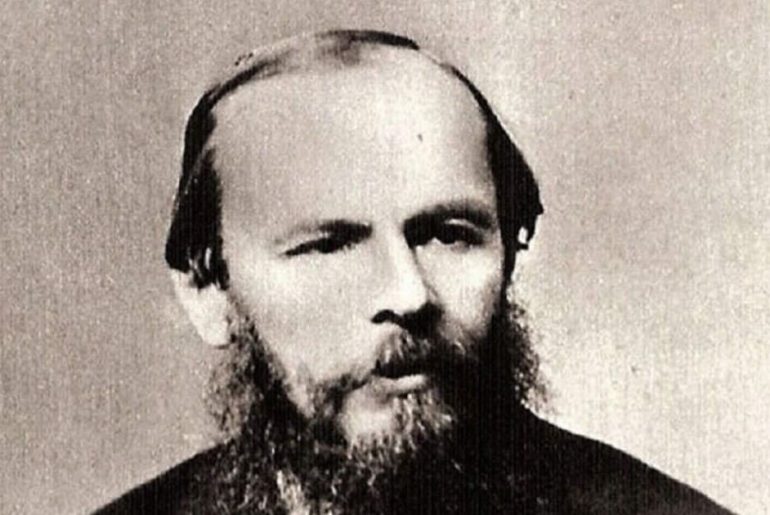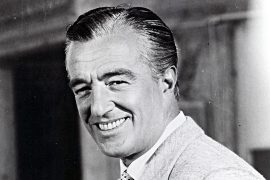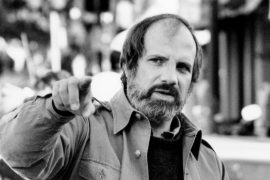The Russian writer was a central representative of realism within literature. With modern psychological storytelling and the philosophical complexity of his novels, Fyodor Mikhailovich Dostoyevsky advanced to become one of the most important authors of the 19th century. His works, initially based on Christian and later on religious-philosophical patterns of thought, are broad in scope. Characteristic of his style is the great psychological intensity of the description of the characters of his protagonists. Especially in his late work, the idea of a golden age, taken over from socialism, appears as a guiding motif. His main works, which appeared in the 1860s and 1870s, include “Crime and Punishment”, “The Idiot”, “The Demons” and “The Brothers Karamazov”. The works of Dostoyevsky have been translated into more than 170 languages…
Fyodor Mikhailovich Dostoyevsky was born on November 11, 1821 as the youngest son of an impoverished noble family in Moscow.
Dostoyevsky suffered from epileptic seizures as a child. A year earlier his brother Michajl Michajlowitsch was born. After the death of his mother, Maria Fyodorovna, the family moved to St. Petersburg, where he studied at the military academy from 1838 to 1843. In 1839 his father, a doctor, Mikhail Andreyevich Dostoyevsky was murdered by serfs on his estate. From 1844 Dostoyevsky worked as a freelance author. He began with the novel “Poor People”, which gave him his breakthrough as an author. In the same year he met the critic W.G. know Belinsky. In 1849 he was denounced, arrested and sentenced to death for allegedly anti-state actions in the circle around Petraschewskij. He had read out a “criminal letter” that Belinsky had written to Gogol.
Tsar Nicholas I pardoned him on the place of execution. He was sentenced to 4 years of exile with forced labor in Siberia (1850-1854) and subsequent military service as a “common soldier” (from 1854). Promoted to officer in 1856, he began the “Notes from a House of the Dead,” which describe the period of suffering in Siberia. In 1857 he married Maria Dimitiyevna Isayeva. The story “A Little Hero” appeared. Two years later, in 1859, Dostoyevsky was dismissed from the army on application because of his severe epileptic seizures. He returned to St. Petersburg. There he was under constant secret police surveillance. In the same year “Uncle’s Dream” and “The Stepanchikovo Manor and Its Inhabitants” were published. Notes from a House of the Dead appeared the next year.
In 1861, together with his brother, he edited the magazine “Die Zeit” and published “The Humiliated and Insulted” in it. In the years 1862 and 1863 he embarked on two major trips abroad, where he discovered his passion for gambling. The magazine “Die Zeit” was banned. In 1864, the brothers founded a new magazine called “The Epoch”. In that year, 1864, he suffered several strokes of fate. First his first wife died, then his brother. A year later the printing of the magazine “Die epoch” was discontinued. A third trip followed. The time of the great novels began. “Crime and Punishment” was published in 1866. In the same year he dictated the short novel “The Player” in 24 days. In 1867 Dostoyevsky married Anna Snitkina.
Due to ongoing financial difficulties, he was forced to undertake a longer stay abroad from 1867 to 1871. In 1868 the novel “The Idiot” was published. His first daughter Sofija was born but died in the same year. In 1869 his second daughter Lyubov was born. In the years 1871 to 1872 “The Demons / Part I-II” appeared as a preprint in the Russian Messenger. His wife gave birth to the first son Fyodor. Dostoyevsky contacted conservative government circles and worked on the third part of Demons. In 1873 “The Demons” was published in three volumes. Two years later “The Youth” was published and his second son Aljoscha was born. In the years 1876 and 1877 the “Diary of a Writer” was self-published in the form of a monthly magazine, and he also published “The Gentle” as a reaction to the suicide of Alexander Herzen’s daughter Lisa.
In 1878 the son Aljoscha died. In 1880 the novel The Brothers Karamazov was published. His financial situation had improved in recent years due to his fame, which was evident in the speech at the Pushkin celebration.
Fyodor Mikhailovich Dostoyevsky died on January 28, 1881 after a hemorrhage caused by emphysema. The funeral service on January 31 was attended by 60,000 mourners.
What is Fyodor Dostoevsky known for?
Dostoyevsky is best known for his novella Notes from the Underground and for four long novels, Crime and Punishment, The Idiot, The Possessed (also and more accurately known as The Demons and The Devils), and The Brothers Karamazov.
What is Fyodor Dostoevsky philosophy?
Its main principle is the Law of Love, which is simply the golden rule of love of others. Since Dostoevsky believes that the fulfillment of this commandment of love is impossible for human beings in their fallen condition, he also affirmed their need to merge their love of others with the love of God.
Was Dostoevsky famous in his lifetime?
In the later years of his life, Dostoevsky’s fame had reached far and wide, and his work was widely appreciated both in Russian and in the rest of Europe.
Why Dostoevsky is a genius?
And therefore, I conclusively state that Dostoevsky is a literary genius! His psychological explorations of the human mind in relation to moral questions is unparalleled. You can read his books over and over again but somehow always find new substance. Crime and Punishment is one of the best books ever.
What was the IQ of Dostoevsky?
In existographies, Fyodor Dostoyevsky (1821-1881) (IQ:180|#118) [RGM:44|1,500+] (Gottlieb 1000:77) (Murray 4000:11|WL) (GLA:30|43+) (CR:50) was a Russian novelist, psychologist (Nietzsche, 1887), and moral philosopher, noted for his 1864 Notes From the Underground, his 1866 Crime and Punishment, wherein he employs.
Why is it important to read Dostoevsky?
Dostoevsky’s books are glimpses of such truth. They awaken the reader’s desire for any concrete evidence that hope is not madness. No one has ever shown better how far our acts transcend our little conscious lives, how vital it is to live them lucidly, with clear eyes.
What personality type is Dostoevsky?
They are passionate, idealistic, and have a deep concern for others. INFJ writers include Plato, Mary Wollstonecraft, Nathaniel Hawthorne, Dante Alighieri, Fyodor Dostoevsky, Agatha Christie, Charlotte Brontë, J.K. Rowling, Carl Jung, and Leo Tolstoy.
What can you learn from Dostoevsky?
READING & WRITING. Timeless Life Lessons Learned From the Dostoevsky.
Being poor is not a vice, but begging is. Poverty is no vice.
If it doesn’t affect us, we overlook it.
The social environment shapes the human being.
Violence for the “right” purpose is celebrated without questioning.





